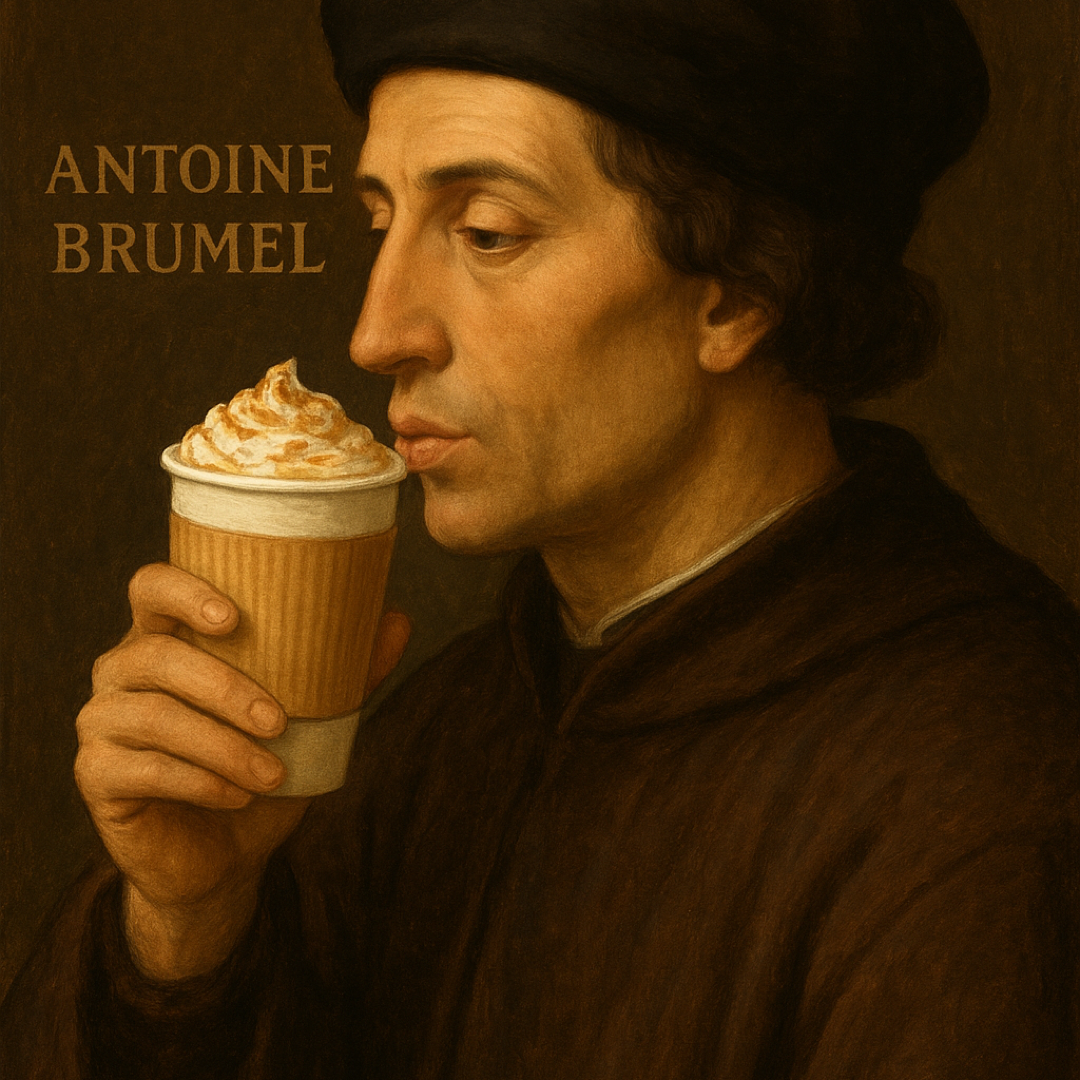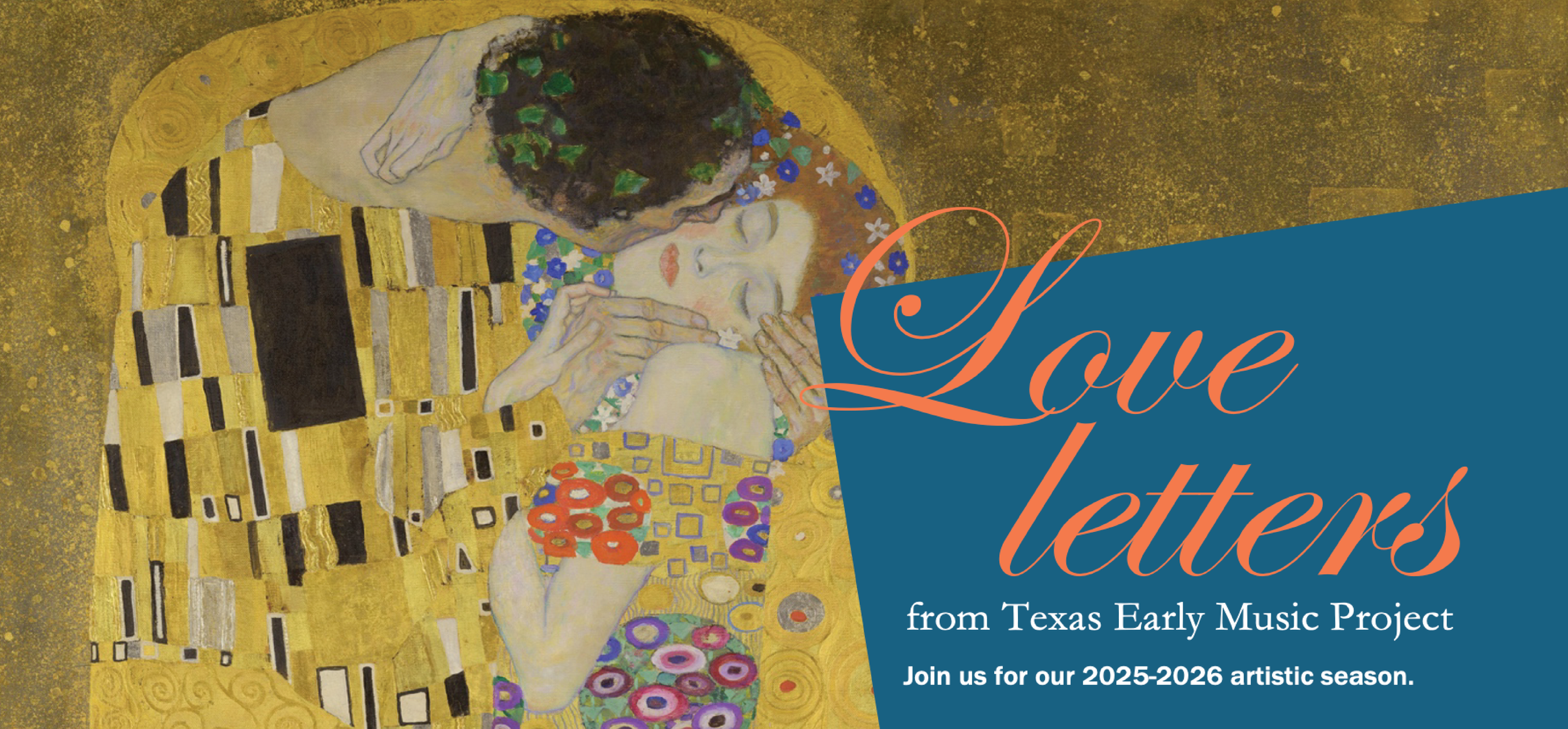My Dinner with Antoine
Danny Johnson
Welp, even though good ol’ Ben Franklin said “Guests, like fish, begin to smell after three days,” that wasn’t the case with the visit from my friend Antoine. When he found out that we were featuring movements from the mass he’s recently written in our first concert of the season, he decided to come on over from “Yurp” so we could confab about it before we started rehearsals.
He had never been to AusTex before, so we did a little sightseeing and he just had to go to Antone’s—partly because he thought they had misspelled Antoine’s–and partly because he wanted to hear some blues. He dug it, needless to say, but couldn’t understand why they wouldn’t be interested in having a little sightreading session on stage since he had brought along the manuscript of a new motet that he’s been working on [he carries it everywhere— I’m surprised it fit in the overhead]. He really didn’t understand that members of the general public wouldn’t be able to read the kind of music notation that he’s used to.
He got over it after we drove around a little bit more. We had to stop for oil when the warning light came on in my car, but luckily we found some seasonal 10W-40. Then he wanted to go to another iconic Austin restaurant, so went to Fonda San Miguel for some of that interior Mexican food he had heard so much about. He dug that, too, and we stayed there for hours discussing musica ficta, modes, motets, and margaritas. The margaritas led him to unload tons of gossip about Josquin and the reasons he really left Italy, and also about his pranksterisms: leaving lots of scores unsigned and/or putting the wrong name on others. Antoine said that Jos joked, “Ha! In 500 years they’re gonna be pulling their hair out trying to figure out which pieces I really wrote!”
Sadly, the visit came to an abrupt end when he was summoned—rather, ordered—to get back to Ferrara asap because Lucrezia Borgia wanted to preview the mass she commissioned for her husband, the Duke. (It’s the same mass we are performing in a few weeks, and even though we didn’t really get a chance to confab on it, duty called in no uncertain tone of voice. So to speak.)
On the way to the airport, he was thrilled to see a local coffee place, hoping against hope that they would have his favorite coffee to sustain him for that long flight. He took a selfie with the only pumpkin spice latte he’s likely to have this season, unless he comes back for another visit! Oh, there’s info below about that concert I’ve been mentioning. That mass is really quiiite special; I’m sure Duke Alfonso I will get all shaken up over it! See the details below, including audio excerpts.
-Danny
A Cry of many voices:
British Isles & The Lowlands
Saturday, September 20, 2025, at 7:30 pm
&
Sunday, September 21, 2025, at 3:00 pm
St. Martin’s Lutheran Church, 606 W. 15th Street
Admission (with fees): $53 VIP general; $38 general; $48 VIP seniors (60+);
$33 seniors (60+); $5 students with ID
Tickets available in advance online or by cash, check, or credit card at the door.
For more information, email boxoffice@early-music.org.
Welcome to our 2025–2026 Love Letters concert season in which we will explore the timeless love of agape, the joy and pain of eros, and a dash of philia and storge. In our opening concert, we explore these themes in the music of the British Isles and the Lowlands (or Low Countries, corresponding to modern-day Belgium, The Netherlands, and parts of northern France), particularly during the transition from the late Medieval style to that of the early Renaissance.
The cry of many voices, 26 a cappella voices in this case, will sing both as individuals and as members of a unit while performing some of the most sublime, moving, and exhilarating music imaginable: The ultimate effect is greater than the sum of its parts. There is magic in the interweaving voices, in the hypnotically static harmonic rhythms alternating with florid vocal lines full of both subtle and obvious virtuosity, and in the architecture of starkly transparent solo lines alternating with thickly colorful choral sections. This is the world of the Eton Choirbook in England and the Scottish composer Robert Carver, who was greatly influenced by the Eton Choirbook. It is also the world of the Franco-Flemish composer Antoine Brumel, whose powerful Earthquake Mass developed uniquely on the continent. In order to further the experience of “many voices,” the featured piece from the Eton Choirbook by Robert Wylkynson is for 9 voice parts and the movements from Brumel’s Mass are for 12 parts. But wait—there’s more! Robert Carver’s O bone Jesu is for 19 parts! All three composers build magnificent pillars of sound using different compositional techniques.
As a contrast with these relatively massive vocal works, our consort of viols will offer more transparent timbres with pieces by English composers Robert Fayrfax, John Dunstable, and Hugh Aston, and continental (Lowlands) masters Josquin des Prez as well as Alexander Agricola and Antoine Brumel.
Enjoy these audio teasers from our CD Sacred: Music of the Divine from Medieval to Baroque:
Join us for a beautiful and moving concert that will illuminate the passage from the late Medieval to the early Renaissance with passion and beauty.




